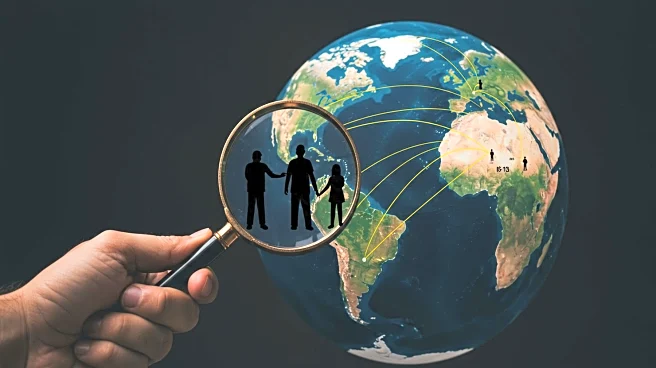What's Happening?
The United States is testing its new migrant transfer deal with Uganda by deporting Kilmar Ábrego García, a Salvadoran national accused of ties to the MS-13 gang. Ábrego García was released from a Tennessee jail and faces deportation to Uganda after rejecting a plea bargain that would have sent him to Costa Rica. His attorney claims U.S. authorities are coercing him into choosing between a guilty plea and deportation to Uganda, where his safety may be at risk. The Trump administration has expanded migrant relocation deals with several African countries, including Uganda, which agreed to accept third-country nationals deported from the U.S. under certain conditions. Critics argue that these deals expose Uganda to security risks and exploit smaller nations with limited policing capacity.
Why It's Important?
The deportation of Ábrego García under the U.S.-Uganda migrant deal raises significant concerns about the ethical and security implications of such agreements. Human rights groups warn that the U.S. is using smaller African nations as dumping grounds for individuals it seeks to remove, potentially overwhelming their security systems. The arrangement with Uganda, which excludes individuals with criminal records, is seen as a humanitarian measure by officials but criticized for potentially destabilizing local communities. The deal highlights the broader issue of how powerful nations manage deportations and the impact on countries with weaker human rights safeguards.
What's Next?
The deportation deal with Uganda is likely to face increased scrutiny from human rights organizations and civil society groups. Uganda's capacity to handle deportees, especially those linked to violent transnational groups like MS-13, will be closely monitored. The U.S. may face pressure to reconsider its approach to migrant relocation agreements, particularly in terms of ensuring the safety and legal status of deportees. Uganda's government may need to address public concerns about the security risks associated with accepting deportees and the potential impact on local communities.
Beyond the Headlines
The U.S.-Uganda migrant deal raises ethical questions about the treatment of deportees and the responsibilities of nations involved in such agreements. Critics argue that the arrangement resembles human trafficking, as Uganda is perceived to be accepting deportees for political favor with the U.S. The deal may also affect Uganda's international reputation and its relationship with other African nations, as it navigates the complexities of hosting deported individuals from the U.S.










